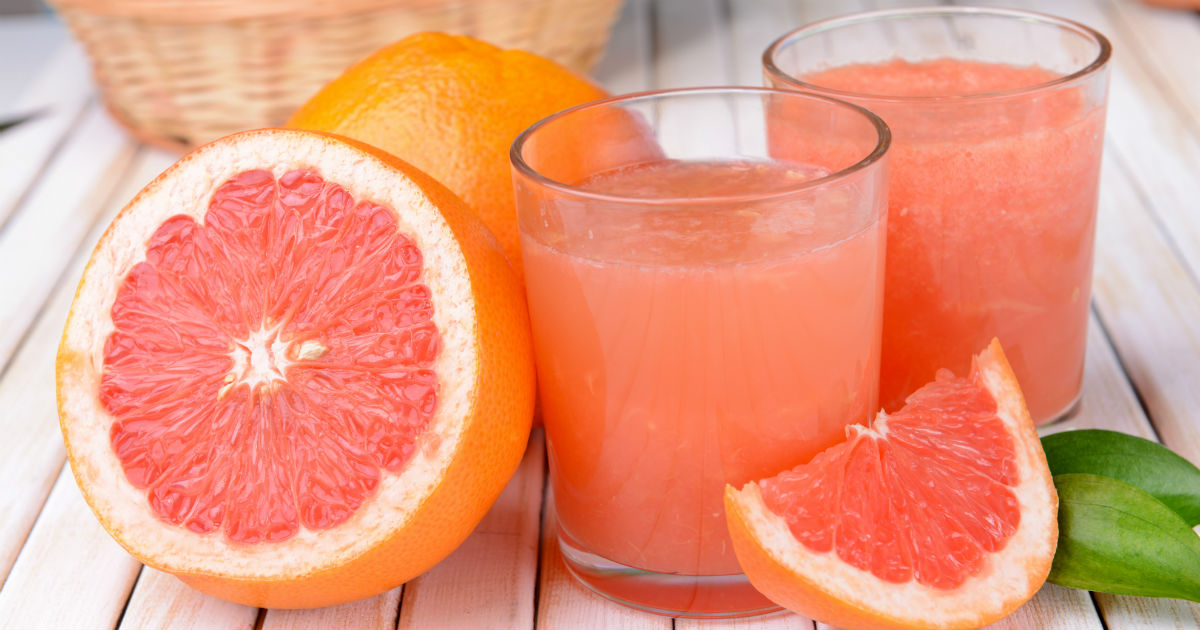
There’s a lot to like about grapefruit juice. It’s a sweet, yet tangy, alternative to orange juice in the morning. It’s full of vitamins A and C. It’s low in calories and high in fiber and potassium. The National Institutes of Health includes grapefruit juice in its DASH (Dietary Approaches to Stop Hypertension) Eating Plan, a diet recommended to help reduce blood pressure. But there’s at least one downside: You can’t have grapefruit juice when taking some prescription medications.
Why? Grapefruit juice can prevent specific medications from working as designed and/or create serious side effects. “Grapefruit juice can slow down the breakdown of some drugs so you can build up toxic levels,” says Anthony Perre, MD, Chief of the Division of Outpatient Medicine at Cancer Treatment Centers of America® (CTCA). “For patients with cancer, there are some contraindications with chemotherapy drugs that you have to watch out for.”
How does grapefruit juice affect medication?
Drugs are broken down, or metabolized, in the body by a variety of enzymes, which are substances that help produce a biochemical reaction. Grapefruit, a hybrid citrus fruit of the sweet orange and pomelo varieties, contains furanocoumarins, chemical compounds that can interfere with those enzymes. Specifically, furanocoumarins may block an enzyme called cytochrome P450 3A4 (CYP3A4), a critical component that helps the body break down drugs.
If CYP3A4 is blocked, drugs that are not metabolized may not work as designed. Or they may stay in the bloodstream longer, build up in the blood and become toxic. “This can lead to a greater concentration of drugs in the body,” Dr. Perre says. “Patients may be at risk for muscle damage, heart arrhythmia or other conditions.” How grapefruit juice and medications interact depends on a variety of factors, especially the amount of CYP3A4 in the body. That’s why the impact and side effects of this interaction vary from patient to patient.
Canadian researchers have identified at least 85 drugs that may interact with grapefruit juice. For patients with cancer, the juice is believed to block the metabolization of some chemotherapy drugs, such as vincristine, used to treat small cell lung cancer, head and neck cancers and breast cancer, and docetaxel, used to treat prostate and breast cancers. Grapefruit juice also should be avoided when taking:
- Statins prescribed to lower cholesterol
- Calcium channel blockers, drugs intended to treat high blood pressure
- Some anti-anxiety drugs
- Corticosteroids intended to treat ulcerative colitis or Chron’s disease
- Some drugs that treat abnormal heart rhythms
- Some antihistamines
“Grapefruit is the most well-known example of a food-drug interaction,” Dr. Perre says. Some less popular citrus fruits, such as Sevillian orange, pomelo and star fruit, have similar properties to grapefruit and should be avoided, as well. Dr. Perre suggests patients ask their doctors about potential side effects of their prescription drugs and how they may interact with certain foods or other drugs.
Learn more about dangerous drug interactions

